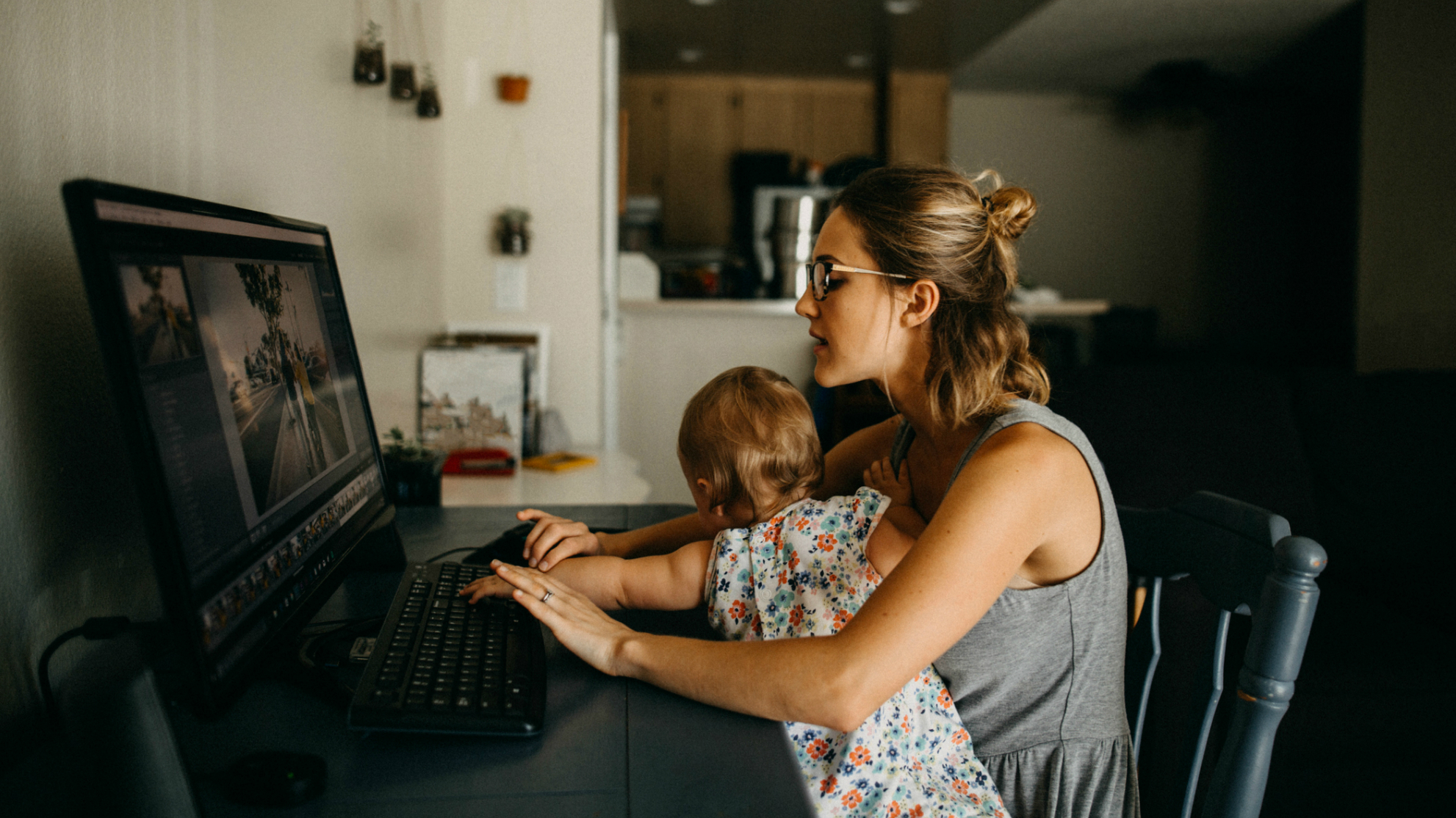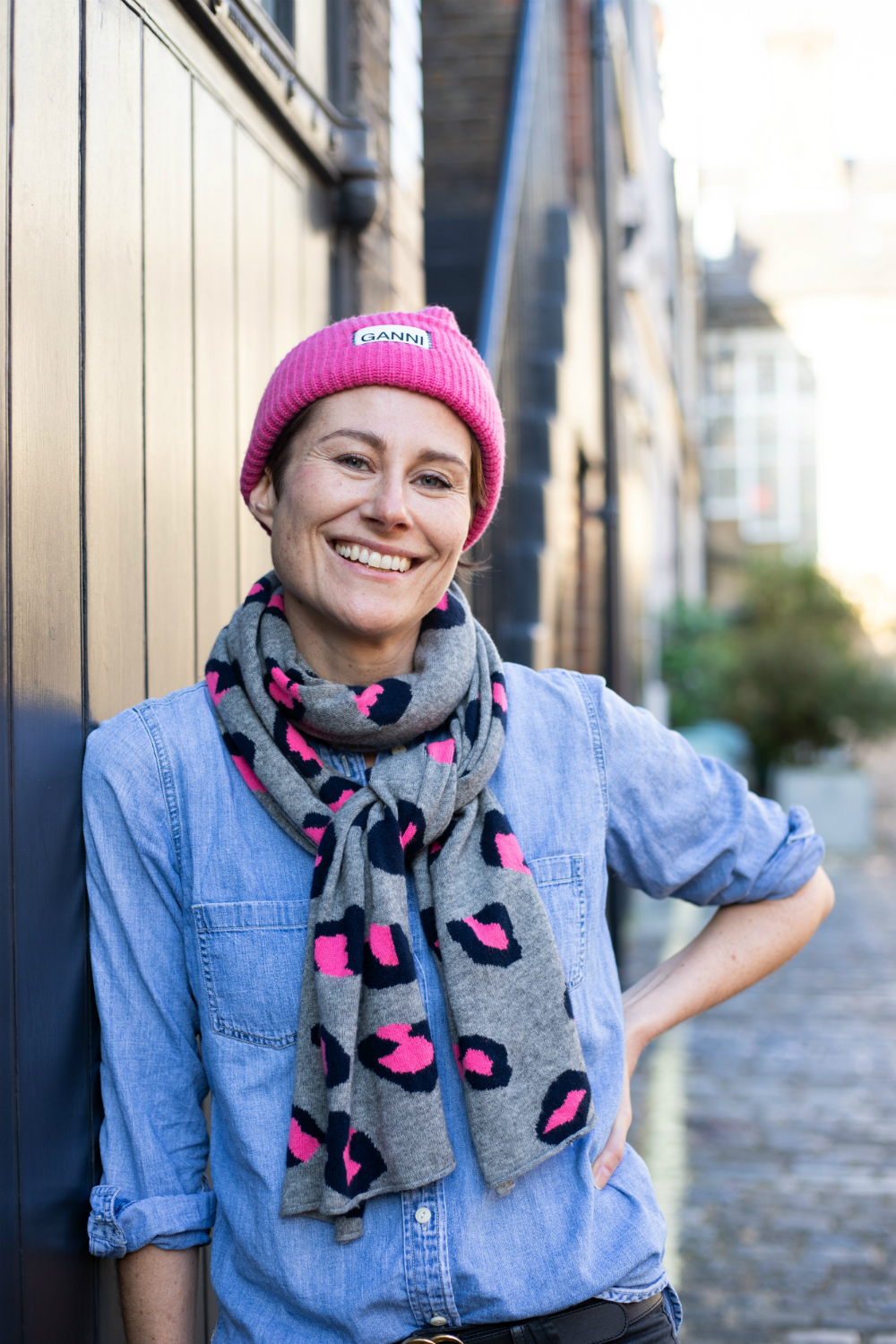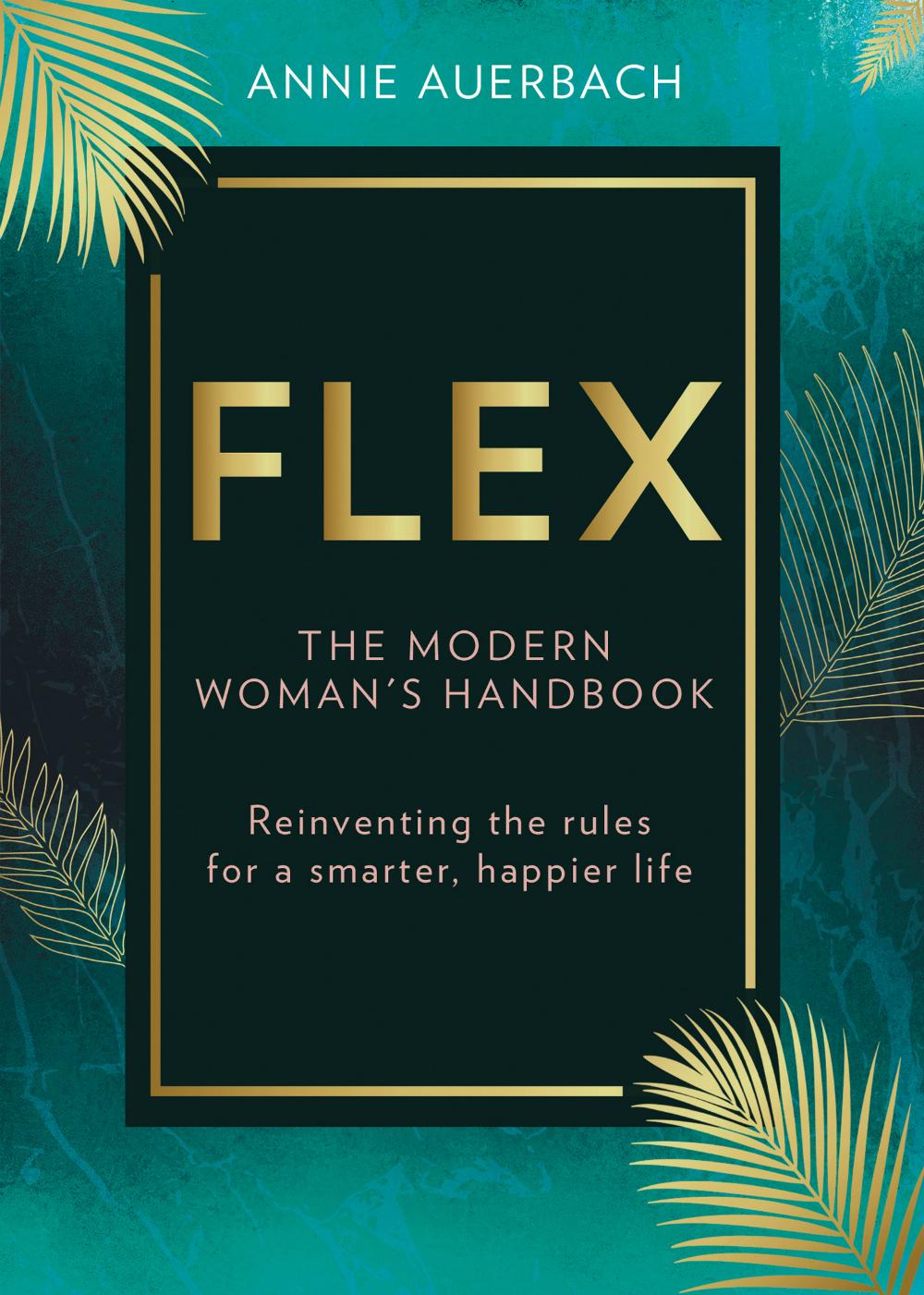The 'Flex' approach that'll make WFH with kids actually work for you
Is your lockdown life an exhausting loop of kids, work, kids, work, kids, binge eat, work, chores, sleep, repeat? Annie Auerbach, CEO and self-help author has a system she swears by and could transform your daily grind


Is your lockdown life an exhausting loop of kids, work, kids, work, kids, binge eat, work, chores, sleep, repeat? Annie Auerbach, CEO and self-help author has a system she swears by and could transform your daily grind
Annie Auerbach is the author of FLEX, a no-nonsense guide to thinking and behaving more flexibly in order to have a happier, better, less frenetic life. She's also co-founder of Starling trends agency, a cultural insights agency, with clients including Nike and Google, whose job is to understand how society is changing. She's also a mum to two young daughters. Here she explains how her Flex approach can help deliver results and ease the stress of working through this pandemic lockdown.
'I wrote Flex after ten years of juggling early motherhood with working flexibly as director of a global research agency. Back then working from home was the exception to the rule. Very few deviated from the traditional 9-to-5, success was earnt through long hours, bums-on-seats and a macho working culture. Unsurprisingly, much of my early flex experience was a shitshow. I wanted to write the book I wish I had read ten years ago - a handbook for living and working at our best, full of tips and inspirational stories to help us through the mess.
I co-founded Starling, a cultural insight agency, four years ago. We work completely flexibly and brief big brands like Nike and Unilever on social and culture trends. We shut our office for two months every summer, which allows us time to keep our minds and ideas fresh.
Working from home has suddenly become the norm. That could mean alone, with children, or with flatmates or partners. Each different scenario brings its own challenges. After all, work culture has for too long made us act like machines of productivity and efficiency. The messy imperfection of our lives is very visible now. In a way, it’s lovely. We’re constantly told to bring our whole selves to work. Now our whole selves and work are completely intertwined.

Allow yourself a period of transition & give yourself a break
It won’t be easy and it won’t be perfect. Don’t be tempted to swap the 9 to 5 to the 24/7. It can feel hard to compartmentalise work when it is happening on the kitchen table, in bed or on the sofa. Your flex needs to have hard edges. Make sure you put work away at the end of the day. Have breaks, go for a walk (as long as we’re allowed to).
Embrace the fact we are all Professor Robert Kelly right now
Kids, cats, partners, housemates will interrupt work and even loom in the background of video calls. Be honest at the outset and explain your situation. I’ve been on client calls in which we’ve all had screaming kids and barking dogs in the background. It’s strangely bonding, and makes for better, more real chats.
Celebrity news, beauty, fashion advice, and fascinating features, delivered straight to your inbox!
Don’t just use video conferences for work meetings
Use digital platforms to hang out with colleagues and friends - have chats, coffee breaks, eat lunch together, suggest a weekly happy hour. We’re so used to calls needing to be purposeful, diarised, and with an agenda, but loneliness is a problem. We need unstructured companionship too.
Share childcare and chores with your partner
If you are in relationship, the emotional load tends to fall on one partner, often women. If you are both working from home, it’s even more important to share the childcare and the chores. And the parent that is working needs to be able to switch into deep work - use headphones, spotify tracks, hide in the loo, anything which allows you to quickly get in the zone.
Children need reassurance and structure
These are strange times where their routines have been completely disrupted, and they need to feel they are not ignored in the rush to figure out how to work from home. So bring them into the process, what do they want to learn and do?
Start each morning working out how to carve up the day - you’re all a team and that includes the kids. The same is true for single parents: work together with the children to divide their day into manageable chunks.
My kids are writing their own timetables which mirror the structure they are used to in school. It includes exercise (Joe Wicks’ daily 9am PE lesson for kids), snacks, crafting (recycling bin raided), virtual playdates over Skype with friends, writing stories with friends over Google docs.
Don't have a strict to-do list
It’s more difficult for you to be as timetabled as the kids because they will interrupt you. Better to think of one outcome for the day rather than a set of tasks to tick off. For you and your colleagues, goals could be weekly rather than daily. It’s hard to go from rigid structure to a messy day stretching ahead of you. Try not to beat yourself up about this.
Dealing with bouts of anxiety
You may get bouts of anxiety throughout the day as it's hard to untether from a 24/7 news cycle. You may be worried about grandparents, parents or vulnerable friends and relatives. I’m trying to figure out the balance between keeping a brave face with the kids and saving angst for my husband at the end of the day. Or thinking that actually it’s better to be real with the kids. I don’t know the answer.
Accept that at any one time, you might be on a different page to your family, your friends, the people sending videos pinging in your whatsapp groups. Some of us are in denial, some are terrified, some use dark humour, some are calm. You’ll feel discombobulated and out of step, but that's OK.

There are so many rational things to say about working from home with kids through a crisis. But we need to hear that it is OK to feel weird. We’re all going through birthing pains of a new way of living which is slower, messier, more complex, more fraught.
You can reinvent your day from scratch
But it could also be very cool. You can shed the stuff that doesn't work and the rhythms that don't suit you. The commute is history, for now. If you are a night owl embrace the evenings and let morning be slow. If you are a morning lark (and are waking even earlier with angst) work while the kids are watching TV.
The temptation is to try business as usual and apply the same metrics as normal. I’ve heard of businesses immediately trying to measure inputs remotely, stuck in the belief that people will be ‘shirking from home’. But we need to move away from the old mindsets, laden with presenteeism, burnout and stress. Buckminster Fuller, American inventor and futurist, said: 'You never change things by fighting the existing reality. To change something build the new model that makes the existing model obsolete.'
This is our opportunity to invent the whole thing from scratch. Work culture was broken. Don't use old metrics to measure new circumstances. Now is the time to call out what’s wrong and dream up new solutions.'
*Annie Auerbach's Flex: The Modern Woman’s Handbook, £9.99, (Harper Collins) is out now
Maria Coole is a contributing editor on Marie Claire.
Hello Marie Claire readers – you have reached your daily destination. I really hope you’re enjoying our reads and I'm very interested to know what you shared, liked and didn’t like (gah, it happens) by emailing me at: [email protected]
But if you fancy finding out who you’re venting to then let me tell you I’m the one on the team that remembers the Spice Girls the first time round. I confidently predicted they’d be a one-hit wonder in the pages of Bliss magazine where I was deputy editor through the second half of the 90s. Having soundly killed any career ambitions in music journalism I’ve managed to keep myself in glow-boosting moisturisers and theatre tickets with a centuries-spanning career in journalism.
Yes, predating t’internet, when 'I’ll fax you' was grunted down a phone with a cord attached to it; when Glastonbury was still accessible by casually going under or over a flimsy fence; when gatecrashing a Foo Fighters aftershow party was easy-peasy-lemon-squeezy and tapping Dave Grohl on the shoulder was... oh sorry I like to ramble.
Originally born and bred in that there Welsh seaside town kindly given a new lease of life by Gavin & Stacey, I started out as a junior writer for the Girl Guides and eventually earned enough Brownie points to move on and have a blast as deputy editor of Bliss, New Woman and editor of People newspaper magazine. I was on the launch team of Look in 2007 - where I stuck around as deputy editor and acting editor for almost ten years - shaping a magazine and website at the forefront of body positivity, mental wellbeing and empowering features. More recently, I’ve been Closer executive editor, assistant editor at the Financial Times’s How To Spend It (yes thanks, no probs with that life skill) and now I’m making my inner fangirl’s dream come true by working on this agenda-setting brand, the one that inspired me to become a journalist when Marie Claire launched back in 1988.
I’m a theatre addict, lover of Marvel franchises, most hard cheeses, all types of trees, half-price Itsu, cats, Dr Who, cherry tomatoes, Curly-Wurly, cats, blueberries, cats, boiled eggs, cats, maxi dresses, cats, Adidas shelltops, cats and their kittens. I’ve never knowingly operated any household white goods and once served Ripples as a main course. And finally, always remember what the late great Nora Ephron said, ‘Everything is copy.’
